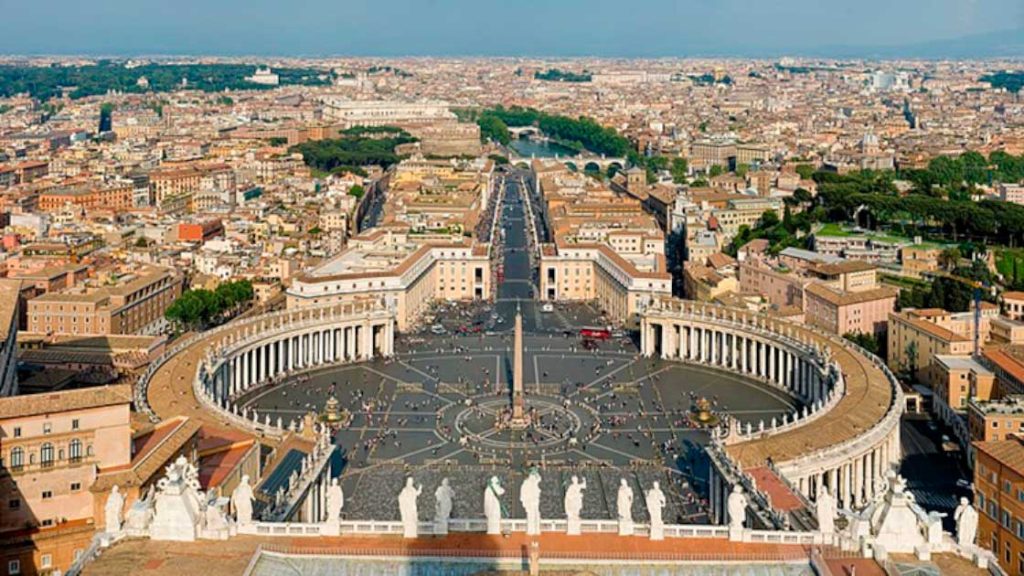The significance of the ancient gospels of Christianity in establishing the religion’s foundations is unchallenged. Nowhere else are we told of the life of Jesus in detail, and nowhere else are we allowed to glimpse the physical embodiment of the Christian god.
This may not always have been the case. Many documents related to origins of Christianity and the early days of Jesus Christ have been lost to time. In the centuries since many scholars have found it fruitful to try and fill in the gaps, and to uncover a fuller picture of who Jesus was.
Interestingly, one of the most controversial manuscripts regarding Christianity is The Essene Gospel of Peace, authored by Edmond Bordeaux Szekely. It argues that Jesus was a vegetarian and emphasizes the benevolent side of Jesus Christ.
This is likely the first time the question of the diet of Jesus has really occurred to people, but the debate that this sparked far outgrew its humble origins. Why was the question of Jesus’s food so important?
Edmond Bordeaux Szekely
Before you learn about the Essene Gospel and how it describes Jesus as a vegetarian, it is important to know the author, Edmond Bordeaux Szekely. Edmond Szekely was a Hungarian philosopher, linguist, health enthusiast and psychologist.
Straight away however something is amiss. He claimed not to have authored The Essene Gospel of Peace but to have translated it, from ancient texts he had discovered in the 1920s. The origins of these texts were never produced, and so the authenticity of his translation could not be confirmed.
Szekely established the “International Biogenic Society”, along with Nobel Prize winner Romain Rolland, in 1928. According to the publications by the International Biogenic Society, Szekely was a Ph.D. holder having received his degree at the University of Paris.
- Why was the Infancy Gospel of Thomas Excluded from the Bible?
- When Was Jesus Born and His True Age at Death
In addition, he also qualified for many other degrees from universities in Leipzig and Vienna. On top of it, Szekely also served as a professor of experimental psychology and philosophy at Bolyai University in Romania. The books of Szekely were translated into multiple languages, including German, Romanian, Spanish, Hungarian and French.

After the foundation of the International Biogenic Society, Szekely traveled to many places in the world, including Tahiti, France, the Carpathians, Eastern Europe and Africa. He met with L. Purcell Weaver in Tahiti in 1934, and the latter credited Szekely with improving his health.
In the late 1930s, he moved to Leatherhead, England and worked as the director at the British International Health and Education Centre. Szekely married 1939 Deborah Shainman and set up a camp known as Rancho la Puerta for exploring and testing their ideas about vegetarianism.
Over the course of time, the couple welcomed two children as Szekely continued working on his research alongside writing different books and conducting many seminars worldwide.
What did the Essene Gospels say about Jesus?
Edmond Bordeaux Szekely claimed to have found his source material in the Vatican archives. He published the first book of the Essene Gospel in 1923 and released the other three parts over the course of the next few decades. Szekely claimed that he discovered many unclear Aramaic and Hebrew texts during his period of studying at the Vatican.
According to Szekely, the texts proved that the Essene people were vegetarians, and Jesus himself prescribed vegetarianism. He said that the Vatican archives had Aramaic texts of The Essene Gospel of Peace as well as what he called The Essene Book of Revelation. In addition, he also claimed to have discovered the original Hebrew text for The Essene Gospel of Peace in a monastery at Monte Cassino in Italy.
The views of Szekely about the teachings of Jesus Christ have been widely hailed as controversial. The research and writings of Szekely focused profoundly on challenging many assumptions about life and lessons by Jesus. Szekely brought forward many interesting views on the mystical teachings of Jesus.
For example, the Book 1 of The Essene Gospel of Peace highlighted that health and prosperity come to people who respect Mother Earth. The teachings of the book also showed the need for bathing in water to clean your spirit. In addition, it also asks people to bathe in sunlight before they reach out to a divine presence. Also enemas, lots of enemas.
- Apollonius of Tyana Similarities to Jesus Christ
- Land of the Rising Son: Did Jesus Retire To Rural Japan?
The Essene Gospel of Peace also states that Jesus asked people to build a brethren of individuals with common beliefs in the existence of God. Most important of all, the statements in the Book 1 of the Essene Gospel also show how Jesus advocated vegetarianism. The book indicates that anyone who kills or eats the flesh of killed beasts is consuming death itself.
According to the book, anyone killing a beast without a cause, only for its flesh, hide or tusks, would qualify as nothing less than a beast themselves. On top of it, the teachings of Jesus in the Essene Gospel of Peace define that your body, thoughts and spirit would reflect what you eat.
Problematic
Like many other religious scriptures claiming divine authorship, The Essene Gospel of Peace has been subjected to doubts regarding its authenticity. Many critics have dismissed the Essene Gospel written by Edmond Bordeaux Szekely as a hoax.
The Vatican denied Szekely being allowed access to the Vatican archives as well as the existence of the texts from which he derived his research. On the other hand, the monastery in Monte Cassino was destroyed in the Second World War. If his text came from there, it is now gone forever.

Subsequently, Szekely had come up with sequels to the Essene Gospel of Peace, supposedly based on texts ranging back to the first century. Apparently, the source material for Szekely’s work has not been accessed by anyone else other than him.
Without proof of the existence of the sources, it is reasonable to doubt the legitimacy of Szekely’s claims. At the same time, it is also important to consider the possibility of a scam designed by Szekely to draw people to the International Biogenic Society. Was it a mere ploy to expand his ideologies about life, food and Jesus?
There are other warning signs as well. Szekely did not address instances in the canonical gospels where Jesus is clearly associated with meat, for example as with the miracle of the loaves and the fishes. Given his documents both contradict the Bible and conveniently espouse his own dietary beliefs, it seems clear that these unsourced “gospels” should be considered shaky at best.
But after more than 90 years of its publication, the Essene Gospel of Peace remains a mystery unsolved. The health spa founded by Szekely and his wife at Rancho la Puerta in California continues to propagate his vegetarian diet and lifestyle. Did he actually translate the ancient texts which later on fell prey to unprecedented accidents? Only time would reveal the possible truth behind Szekely’s work.
Top Image: Edmond Bordeaux Szekely claimed to have translated ancient texts which revealed Jesus was a vegetarian, but never provided proof. Source: jcfotografo / Adobe Stock.
By Bipin Dimri